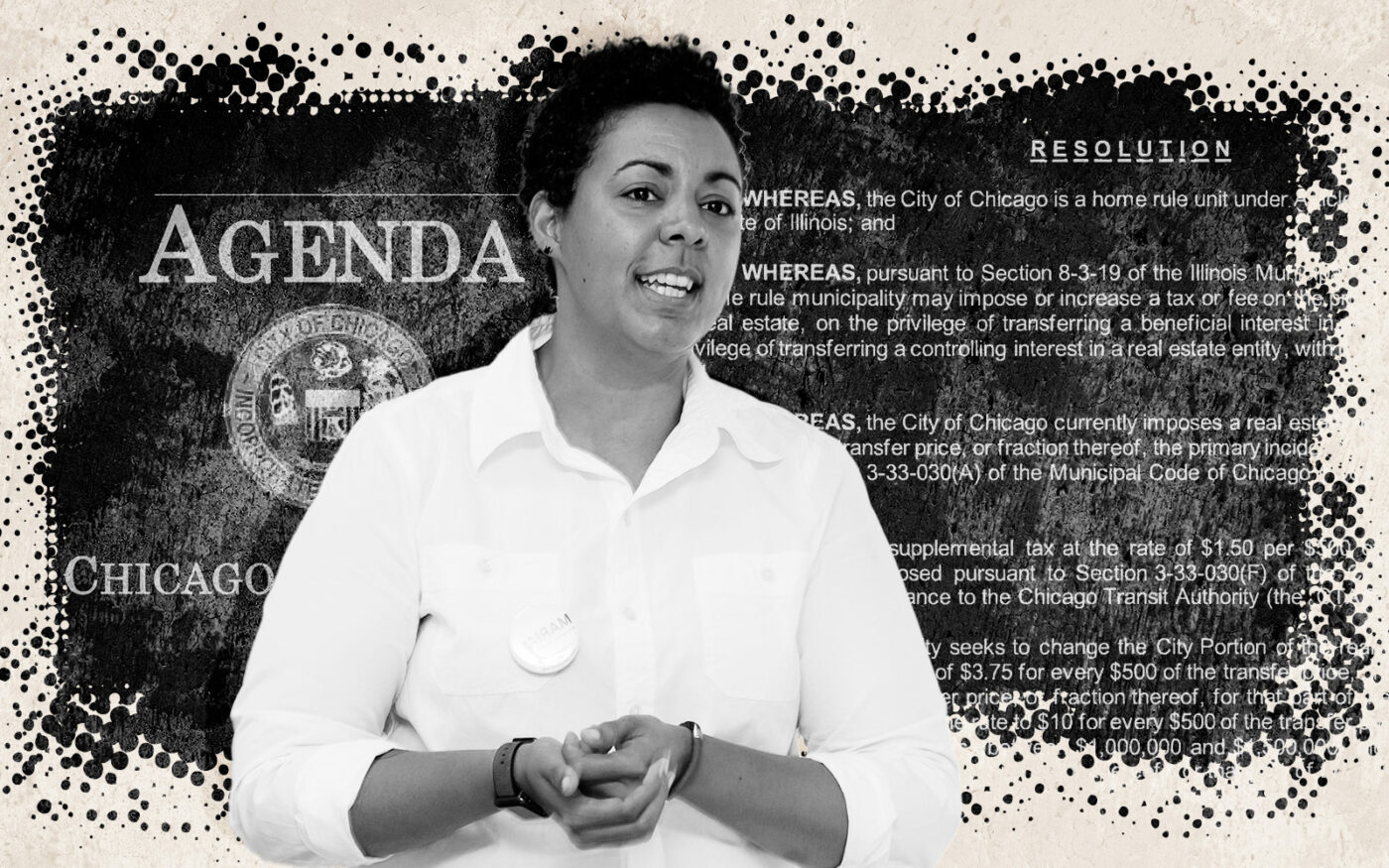 Landlords say they’d raise rents if transfer tax hike occurs
Landlords say they’d raise rents if transfer tax hike occurs
Trending
Transfer tax hearing gets heated at Chicago City Council
Progressives pushing to increase city’s cut out of $1M-plus transactions

Advocates for raising Chicago’s real estate transfer tax to fund homeless services held back little as they attacked the commercial property industry in City Hall on Wednesday.
They filled Chicago City Council gallery seats and lashed out with “boos” as leadership of area business lobbies and trade groups spoke during a hearing against Mayor Brandon Jonson’s proposal to create a three-tier tax structure that would hike the burden on property sales of $1 million or more.
“Those who oppose it are doing so because that is their bottom line,” said Diane Limas, a volunteer for nonprofit Communities United who was among several supporters of the proposal to clap back at industry talking points.
While the hearing highlighted stark ideological gaps between the proposal’s supporters and most real estate professionals, the measure is gaining momentum despite pushback from trade groups such as the Chicagoland Chamber of Commerce and office building industry organization BOMA/Chicago, whose leaders say it would discourage investment in the city and unfairly harm the industry at a time when properties are distressed and office and retail vacancies are at a historic high.
“We don’t have the luxury of only having one crisis to deal with,” Farzin Parang, executive director of BOMA/Chicago, said.
The current transfer tax rate in Chicago is 0.75 percent of the sale price on all properties. The proposal would reduce the rate to 0.6 percent for property sales under $1 million, while increasing it to 1 percent for sales between $1 million and $1.5 million, and 3 percent for transactions over $1.5 million.
Though it would reduce taxes on many home sales, real estate industry leaders say the increase would impact virtually all office and retail properties and lead property owners to increase their rents to make the costs pencil out. They’ve also said it could contribute to bigger residential property tax bills as the new one-time charge out of pricey deals by the city cuts into commercial property’s assessed value, since commercial property is taxed at a rate that’s 2.5 times higher than homes.
“Landlords both commercial and residential would raise rents to account for an increase to the current transfer tax, giving investors another reason to look to other cities which would impede development,” the Chicagoland Chamber of Commerce’s Brad Tietz said.
Supporters of the proposal claimed property owners would do that anyway.
“These landlords have been raising rents since way before Bring Chicago Home,” the Chicago Coalition for the Homeless’ April Harris said.
The resolution will go through the council’s Rules Committee next; a date for the panel to consider the measure has not yet been made public. The City Council must approve a resolution to put the proposed tax rate on the ballot for Chicago voters to enact or reject the measure. The next election at which such a referendum could be held is set for March.
Read more
 Landlords say they’d raise rents if transfer tax hike occurs
Landlords say they’d raise rents if transfer tax hike occurs
 Chicago Realtors ramp up opposition against Johnson’s transfer tax
Chicago Realtors ramp up opposition against Johnson’s transfer tax
 How Chicago landlords get drilled by Johnson’s transfer tax tweaks
How Chicago landlords get drilled by Johnson’s transfer tax tweaks




